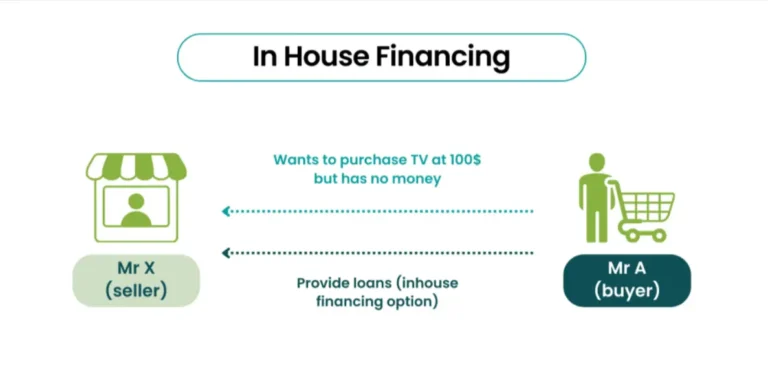How Blockchain in Fantasy Sports App can be Improved
Fantasy sports apps have taken the world by storm. Millions of fans love building teams and competing based on real-life player stats. But these apps face challenges like trust, security, and fairness. Blockchain technology might be the answer. In this blog post, we’ll look at how blockchain in fantasy sports app can be improved. We’ll cover what fantasy sports are, what blockchain does, the problems apps face, and how blockchain can help. Plus, we’ll check out real examples and what the future might hold.
What Are Fantasy Sports?
Fantasy sports let fans create imaginary teams using real athletes from sports like football, basketball, or soccer. You pick players, form a roster, and earn points based on how those athletes perform in actual games. It’s a mix of strategy, knowledge, and fun.
These games have grown huge thanks to apps. Fans join leagues with friends or strangers. Some leagues are free, while others have entry fees and cash prizes. The excitement comes from managing your team and watching real games affect your scores.
But with money and competition involved, trust matters. Players want to know the app is fair, the stats are right, and their winnings are safe. That’s where blockchain comes in.
What Is Blockchain?
Blockchain is a way to store information safely and openly. Think of it as a digital record book that many computers share. Each record, or “block,” gets added to a chain. Once it’s there, it can’t be changed easily.
Here’s how it works in simple terms:
-
Shared Network: No single person or company controls it. Many computers keep the same copy of the record.
-
Security: To change anything, you’d need to update most of those computers. That’s nearly impossible without everyone noticing.
-
Openness: Anyone can see the records. This builds trust because nothing is hidden.
You might know blockchain from Bitcoin, but it’s useful for more than just money. It can track data, enforce rules, and keep things fair—perfect for fantasy sports apps.
Problems in Fantasy Sports Apps Today
Fantasy sports apps are fun, but they’re not perfect. Here are some common issues:
Trust Issues
Players need to trust that the app is honest. If stats are wrong or manipulated, it ruins the game. There have been cases where errors in data messed up scores. Worse, some worry about cheating—like insiders rigging results.
Money Handling
Many apps involve cash. You pay to join a league, and winners get payouts. But how do you know the money is handled right? Delays, mistakes, or even fraud can happen. Users want proof their funds are safe and prizes go where they should.
Data Security
Apps store personal info like names, emails, and payment details. Cyberattacks are a growing risk. If hackers get in, users lose trust—and maybe their money.
These problems push developers to find solutions. Blockchain might be the fix.
How Blockchain in Fantasy Sports App Can Help
Blockchain brings tools to tackle these issues head-on. Let’s break down five ways it can make fantasy sports apps better.
1. Safe Money Transactions
In fantasy sports apps, money moves fast—entry fees in, prizes out. Blockchain makes this secure and clear. Every payment gets recorded on the chain. Users can check it anytime. No one can fake it or steal it without the network catching on.
For example, when you pay to join a league, that transaction hits the blockchain. It’s locked in. When you win, the payout happens automatically. No delays. No disputes. It’s a clean, safe system.
2. Accurate Player Stats
Stats are the heart of fantasy sports. If they’re off, your team suffers. Blockchain keeps stats honest. Once game data—like points or rebounds—goes on the chain, it’s permanent. No tampering.
Apps could pull stats from trusted sources, like sports leagues. Multiple computers verify it. Only when they agree does it get added. This means you can trust your fantasy scores every time.
3. Smart Contracts for Fair Play
Smart contracts are like digital rulebooks. They’re coded to run on their own. In a fantasy sports app, they can manage everything.
Imagine this: You join a league. The smart contract collects fees, locks them up, tracks scores, and pays winners—all automatically. No human can mess with it. The rules are set, and everyone sees them. It’s fair for all.
4. Team Ownership
Most apps control your team data. With blockchain, you could own your roster for real. How? Through something called NFTs—unique digital items.
Your team becomes yours, like a collectible. You could trade it or sell it. Maybe even use it in other apps someday. It’s a new twist on fantasy sports.
5. Tokens for More Fun
Tokens are like app coins. Blockchain can create them for fantasy sports. You might earn tokens by winning or playing a lot. Then, use them to join special leagues or buy cool features.
Some tokens could even have real value. Trade them or cash them out. It’s a way to keep players hooked and reward them.
Real Examples of Blockchain in Fantasy Sports Apps
Some companies already use blockchain in sports games. They show what’s possible.
FanChain
FanChain builds a system where fans earn tokens. You get them for watching games or playing fantasy-style challenges. It’s tied to blockchain for security. While not a full fantasy app, it hints at what’s coming.
Sorare
Sorare is a fantasy soccer game. You collect digital player cards as NFTs. Each card is one-of-a-kind, tracked on blockchain. You build teams with them and compete. It’s a mix of fantasy and trading cards—and it’s growing fast.
These projects are early steps. They prove blockchain works in sports apps.
The Future of Blockchain in Fantasy Sports Apps
What’s next? Blockchain could shake up fantasy sports in big ways.
More Trust
Picture an app where all stats and cash flow are on blockchain. Players see everything. Trust skyrockets. Apps that use this could stand out.
Faster Growth
The fantasy sports market is booming. A report says it hit $18.6 billion in 2019 and keeps climbing—up 14.7% each year through 2027. Blockchain could fuel that by making apps safer and more fun.
New Features
Think about trading teams across apps. Or letting players vote on rules with tokens. Blockchain opens doors to ideas we haven’t seen yet.
Challenges Ahead
It’s not all smooth. Blockchain can be tricky for new users. Apps need simple designs to hide the tech stuff. Also, some blockchains are slow or costly. Developers are fixing this with new tools, like faster networks.
Rules around crypto vary by country too. Apps must follow them carefully. But as tech improves, these hurdles shrink.
Why It Matters for You
If you play fantasy sports, blockchain could mean a lot. Safer cash. Fairer games. More control. Even if you’re new, apps using blockchain might feel easier to trust.
For developers, it’s a chance to build better platforms. Users stick around when they feel secure. That’s gold in a crowded market.
Wrapping Up: Blockchain in Fantasy Sports App
Blockchain in fantasy sports apps is a game-changer. It fixes trust, security, and fairness issues with smart ideas. Safe payments, honest stats, and auto-rules are just the start. Real projects like Sorare show it works. The future? More apps will likely jump in as the tech gets easier to use.
Fantasy sports keep growing. Blockchain can push them further. Whether you’re a player or a fan, it’s worth watching. This tech could make your next league the best yet.







